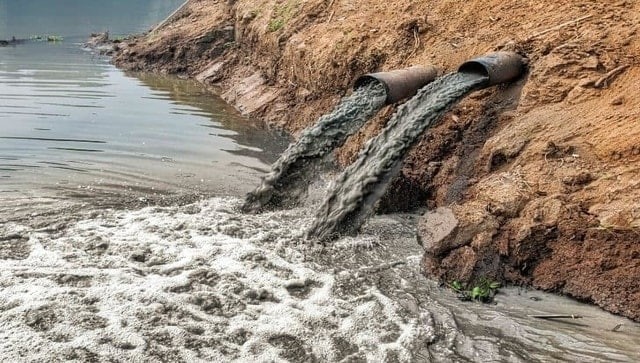By Alok Mittal & Hitesh Oberoi | Financial Express | March 25, 2021

Engineering education institutions must infuse the skill sets relevant to founding and growing successful companies
The purpose of education has gradually evolved — from creating a literate society, to creating a learning and innovating society. A society where people continuously learn and then apply their learning to develop solutions to real-life problems and often even build products and services that people thought were hitherto not possible. Relevant skills against which to benchmark such literacy and learning have also evolved rapidly — from operating and building machines, to driving innovation at breakneck speed. These underlying shifts call for a transformation of engineering education as we know it.
Current engineering education, in most parts of the world, has been designed for hierarchical organisations with well-defined roles — this reflects itself in early segregation and specialisation within disciplines. It also calls for relative separation of engineering and management roles, each pursuing its own tools and techniques for sustenance and innovation. Further, what in hindsight looks like a slower and incremental pace of change, has allowed lifelong careers where the specific technical skill sets remain relevant over a long period of time.
Fundamental changes to these dynamics are in motion. First, technology is evolving at a faster pace than ever. And it is no longer a linear evolution. The ideas of singularity that drive many technological disciplines across computing, biology, energy, etc, are inherently exponential and disruptive in nature. Part of such disruption is driven by digitisation, which has resulted in immense quantity, variety and velocity of data getting captured at various touchpoints, and the availability of the necessary tools to analyse this data. Second, organisations are breaking their hierarchical structures for more agile and cross-functional capabilities. A pipeline-driven organisation with well-defined roles where activities flow from one part of the organisation to another in a lockstep manner just isn’t well-positioned to take advantage of these rapid changes.
The fittest organisations of the future will be the most agile and seamless ones. Hence, small data-driven teams with interdisciplinary skills, decision-making capability and clear accountability of outcomes will drive the organisational structures of tomorrow.
It is in this context of society and changing job roles that engineering education must reimagine itself. The rapid pace of change means that specific skills learnt in college will get outdated several times within our career-span. Hence the ability to learn continually becomes a core capability. The education system will need to ensure that students develop the curiosity to keep learning and that they have the ability to apply this knowledge in practice. At the same time, there is an opportunity for educational institutions to build a continuous learning engagement with their students, rather than think of it as a 3- or 4-year stint.
In the highly-innovative, solution-oriented world of tomorrow, companies will need two kinds of employees — those who are great at interdisciplinary work not just within the disciplines of engineering, but also design, social science, management and relevant domains; and those who have very deep specialisation in areas such as data science, artificial intelligence and cybersecurity. Engineering institutions will have to cultivate these skills amongst students, and in a sense start to integrate more with disciplines conventionally associated with liberal arts and management institutions. University structures may provide an ideal breeding ground for such design and delivery of engineering education.
Another key skill set will be the ability of future employees to work in teams. As organisations get nuclear and hierarchies weaken, making teams perform will become more a function of empathy and influence, and less about authority. Strong interpersonal skills and communication both within and outside one’s teams will become increasingly important. These are areas where current engineering education has played little emphasis, and that needs to be corrected.
There are also few other dynamics at work in a country like India. As India grows bigger and richer, it will move away from being a country that uses technology developed overseas to developing its own IP in every area. This will require deeper collaboration between government, academia and industry, something which one doesn’t see today. We will also need to solve for problems that countries like India face, rather than just orient our education system to ‘developed world problems’. This will call for emphasis on domains like agriculture, climate change, sustainability, health and poverty. It also presents an opportunity for India to leapfrog the world in these areas of research and application.
India could aspire to become a global hub for innovations in electric vehicles, precision medicine, digital health, precision agriculture, data-based services, space and defence technology, and the like. Engineering institutes in India must start to tailor their research and education agenda towards these areas.
Moreover, the economic model in India is highly shaped by smaller organisations and the potential for start-up activity. Citizens of tomorrow must be net job producers and not net job consumers. Engineering education institutions must seize this opportunity and infuse the skill sets relevant to founding and growing successful companies — right from customer understanding, to opportunity identification and building solutions, and to creating sustainable growing organisations. They need to graduate from imparting theoretical knowledge to creating a tinkering mindset amongst students.
The engineering education system in India, today, finds itself in a perfect storm. The opportunities created by rapid technological process, changing organisational norms, democratisation of entrepreneurship and India’s increasing prominence on the global stage provide a perfect crucible for creating a new kind of an engineer.
(This is the second article in the series ‘We need a new kind of engineer’)
Mittal is co-founder, Indifi Technology, and Oberoi is promoter, founder & CEO, InfoEdge Ltd. Both are founders & trustees of the upcoming Plaksha University
The article was first published in Financial Express, on March 25, 2021.



